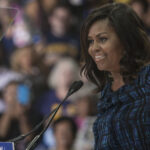David Ketchum, the comedic actor and television writer best known for his role as the perpetually frustrated Agent 13 on the 1960s spy spoof “Get Smart,” died August 10, 2025, at a care facility in Thousand Oaks, California. He was 97.
Ketchum’s daughter, Nicole Madden, confirmed his death to The Hollywood Reporter. The family announced his passing publicly on August 22, noting that he died of heart failure while in hospice care.
Born February 4, 1928, in Quincy, Illinois, Ketchum began his entertainment career as a stand-up comedian and radio host before transitioning to television acting in the early 1960s. He initially majored in electrical engineering at UCLA, uncertain about committing fully to show business.
Ketchum’s television career took off with his role as carpenter Mel Warshaw on the ABC sitcom “I’m Dickens, He’s Fenster,” which aired from 1962 to 1963 alongside John Astin and Marty Ingalls. He then starred as Counselor Spiffy on the NBC comedy “Camp Runamuck” during the 1965-66 season.
However, Ketchum’s most memorable role came when he joined NBC’s “Get Smart” for its second season in 1966. Created by Buck Henry and Mel Brooks, the spy spoof featured Ketchum as Agent 13, an undercover operative who became the centerpiece of one of television’s most beloved running gags. His character would appear squeezed into increasingly ridiculous hiding places, including vending machines, mailboxes, grandfather clocks, fire hydrants, airport lockers, and even washing machines.
The character’s debut came when his sweaty head emerged from under a barbershop steam cabinet cover. Asked by Agent 86, played by Don Adams, what he had learned about the latest criminal plot, Ketchum replied: “I’ve grown to hate the spy business, that’s what I’ve learned.”
In a 2002 interview, Ketchum reflected on the physical challenges of the role, explaining that being 6-foot-2 made it particularly difficult to fit into cramped spaces. He described the washing machine sequence as the most challenging, requiring him to remember his lines while spinning around with water and soap spraying in his face.
Ketchum appeared in 13 episodes of “Get Smart” during its original run from 1965 to 1970. He reprised his role as Agent 13 in the 1989 television movie “Get Smart, Again!” and in one episode of the 1995 Fox reboot series.
Beyond acting, Ketchum established himself as a prolific television writer, contributing scripts to nearly four dozen shows throughout his career. His writing credits began in 1967 with an episode of Garry Marshall’s “Hey, Landlord” and continued through 1990. He wrote for numerous popular series, including “M*A*S*H,” “Happy Days,” “Laverne & Shirley,” “Wonder Woman,” “MacGyver,” “Highway to Heaven,” and “Full House.”
Ketchum’s extensive guest-starring resume included appearances on “The Andy Griffith Show,” “The Mary Tyler Moore Show,” “The Munsters,” “Good Morning World,” “Gomer Pyle,” “Mod Squad,” “That Girl,” “Green Acres,” “The Odd Couple,” and “Alice.” He appeared in five episodes of “Happy Days,” portraying three different characters.
His film career spanned several decades, with roles in “Good Neighbor Sam” (1964), “The Grasshopper” (1970), “Bless the Beasts & Children” (1971), “Your Three Minutes Are Up” (1973), “The North Avenue Irregulars” (1979), “Love at First Bite” (1979), “The Main Event” (1979), “Young Doctors in Love” (1982), and “The Other Sister” (1999).
In 1962, Ketchum released a comedy album titled “The Long-Playing Tongue of Dave Ketchum,” which Billboard praised for his comedic timing and delivery. He also worked alongside Ken Berry, Jackie Joseph, and Jo Anne Worley in the Billy Barnes Revue, which reached Broadway in 1961.
Fellow actor Dave Madden, who worked with Ketchum on “Camp Runamuck,” noted in a 2015 book that Ketchum was naturally funny and drew inspiration from Danny Kaye’s physical comedy style in his performances.
Ketchum’s family released a statement describing his legacy as one of laughter, warmth, and timeless television moments. They encouraged fans to honor his memory by watching one of his classic “Get Smart” performances in remembrance of his quick wit, gentle heart, and cinematic spirit.
Ketchum is survived by his wife, Louise, whom he married in August 1957; their two daughters, Nicole Madden and Wendy Ellis; three grandchildren; and one great-grandchild. The couple had been married for nearly 68 years at the time of his death.








